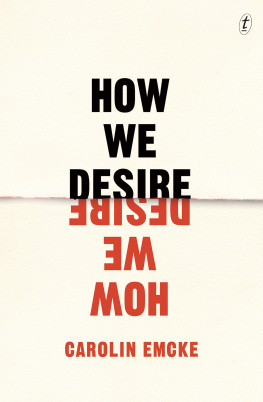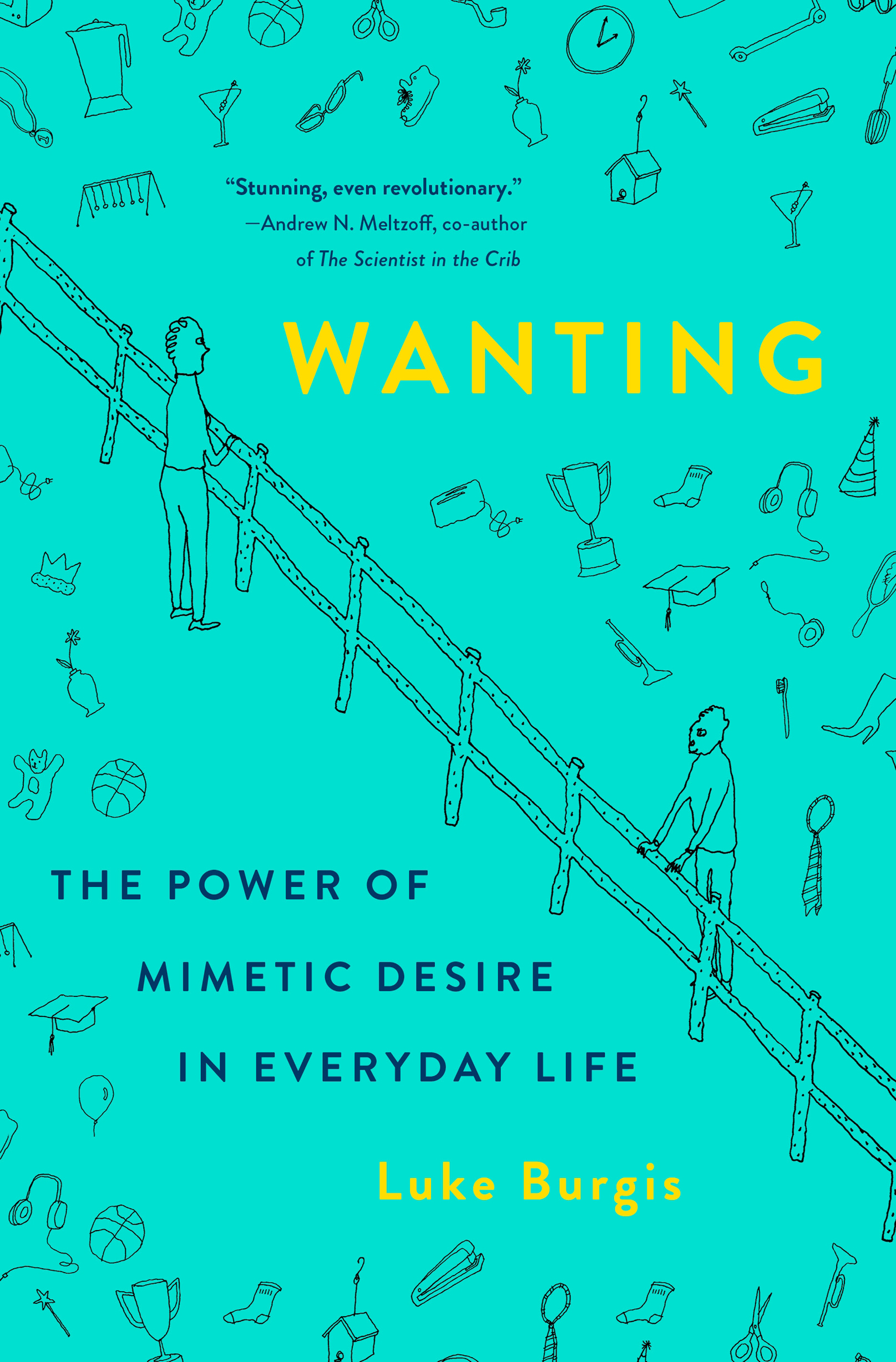Imitation is natural to man from childhood, one of his advantages over the lower animals being this, that he is the most imitative creature in the world.
We want what other people want because other people want it, and its penciled-in eyebrows all the way down, down to the depths of the nth circle of hell where we all die immediately of a Brazilian butt lift, over and over again.
This is a book about why people want what they want. Why you want what you want.
Each of us spends every moment of our life, from the moment were born to the moment we die, wanting something. We even want in our sleep. Yet few people ever take the time to understand how they come to want things in the first place.
Wanting well, like thinking clearly, is not an ability were born with. Its a freedom we have to earn. Due to one powerful yet little-known feature of human desire, that freedom is hard-won.
I spent my twenties starting companies, chasing the entrepreneurial dream that Silicon Valley had enshrined in me. I was searching for financial freedom, I thought, and the recognition and respect that come with it.
Then something odd happened: when I walked away from one of the companies that I had founded, I experienced intense relief.
Thats when I realized I hadnt found anything at all. My previous successes had felt like failures, and now failure felt like success. What was the force behind my tenacious and never-satisfied striving?
This crisis of meaning led me to spend a lot of time in libraries and bars. Sometimes I brought the library to the bar. (Im not kidding. Once I brought a backpack full of books to a sports bar during the World Series and tried to read with Phillies fans celebrating all around me.) I traveled to Thailand and Tahiti. I worked out like a maniac.
But it all seemed like palliative care, not the treatment of the underlying condition. While this period helped me think more seriously about my choices, it didnt help me understand the desires that had led me to those choices in the first placethe navigation system behind my ambition.
One day a mentor suggested I look into a set of ideas that would, he told me, explain why I had come to want the things I wanted, and how my desires entrapped me in cycles of passion followed by disillusionment.
The source of those ideas was a fairly obscure but influential academic. Before he died on November 4, 2015, at ninety-one, Ren Girard was named an immortal of the Acadmie Franaise and called the new Darwin of the social sciences. As a professor at Stanford in the 1980s through the mid-1990s, he inspired a small group of followers. Some of them believed that his ideas would be the key to understanding the twenty-first centuryand that when the history of the twentieth century is written, circa 2100, he would be seen as the most important thinker of his generation.
And you have probably never heard of him.
Ren Girards mind drew other people to him from every direction. To begin with, he had an uncanny ability to notice things that explained mysterious human behavior. He was a Sherlock Holmes of history and literature, putting his finger on overlooked clues while everyone else was busy following the usual suspects.
He was playing a different game than other academics. He was like the only person at a poker table who has identified the tell of the dominant player. While other players are calculating the mathematical odds of having the winning hand, hes staring into faces. Hes watching his rival to see how many times he blinks and whether he picks the cuticle of his left index finger.
Girard identified a fundamental truth about desire that connected the seemingly unconnected: linking biblical stories with volatility in the stock market, the collapse of ancient civilizations with workplace dysfunction, career paths with diet trends. He explained, well before they existed, why Facebook, Instagram, and their progeny have been so wildly popular and effective in selling people both stuff and dreams.
Girard discovered that most of what we desire is mimetic (mi-met-ik) or imitative, not intrinsic. Humans learnthrough imitationto want the same things other people want, just as they learn how to speak the same language and play by the same cultural rules. Imitation plays a far more pervasive role in our society than anyone had ever openly acknowledged.
Our power of imitation dwarfs that of any other animal. It allows us to build sophisticated culture and technology. At the same time, it has a dark side. Imitation leads people to pursue things that seem desirable at first but ultimately leave them unfulfilled. It locks them into cycles of desire and rivalry that are difficult, practically impossible, to escape.
But Girard offered his students hope. It was possible to transcend the cycles of frustrated desire. It was possible to have more agency in shaping the life we want.
My introduction to Girard took me from Oh, shit to Holy shit. Mimetic theory would help me recognize patterns in the behavior of people and in current events. That was the easy part. Later, after seeing mimetic desire everywhere except in my own life, I saw it in myselfmy Holy shit moment. Mimetic theory would eventually help me uncover and declutter my own messy world of desires. And that process was hard.
Im now convinced that understanding mimetic desire is the key to understanding, at a deeply human level, business, politics, economics, sports, art, even love. It can help you make money, if that is your primary driver. Or it may help you avoid waiting until middle age or later to learn that money or prestige or a comfortable life is not primarily what you want.
Mimetic theory sheds light on what motivates economic and political and personal tensions, and also shows the way out of them. For those with a creative spirit, it can guide their creativity to projects that create real human and economic value and not just wealth transfers.
I dont claim that overcoming mimetic desire is possible, or even desirable. This book is primarily about growing more aware of its presence so that we can navigate it better. Mimetic desire is like gravityit just is. Gravity is always at work. It causes some people to live in constant pain when they dont develop the muscles in their core and around their spine to be able to stand up straight and face the world, to resist the downward pull. Others experience that same gravity and find ways to go to the moon.














